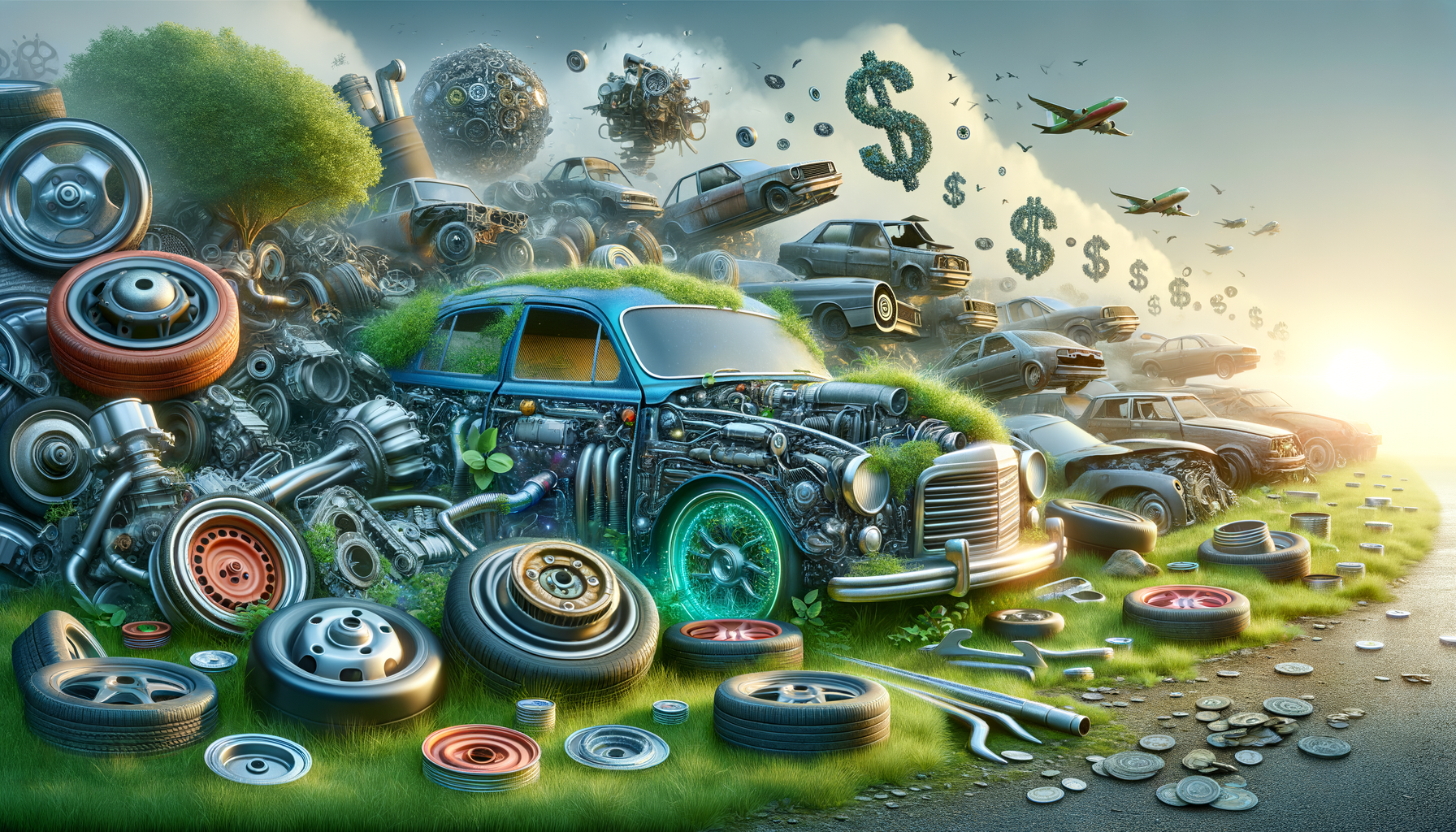Uncovering the Value in Junk Cars: A Comprehensive Guide
Junk cars might seem like a burden, but they can be a hidden treasure trove of opportunities.

The Hidden Value in Junk Cars
Junk cars, often perceived as mere eyesores or useless scrap, actually hold significant hidden value. Many car owners might not realize that these seemingly worthless vehicles can serve as a treasure trove of components and materials. When a car reaches the end of its life, it doesn’t mean that all its parts are unusable. In fact, many components, such as engines, transmissions, and even tires, can be salvaged and repurposed. This not only reduces waste but also provides a cost-effective solution for those in need of affordable car parts.
Moreover, the metal content in junk cars is substantial. Cars are primarily composed of steel and aluminum, both of which are highly recyclable. By extracting these metals, we can contribute to a more sustainable circular economy. This process not only conserves natural resources but also reduces the energy consumption associated with manufacturing new metals. Thus, junk cars present a valuable opportunity to support environmental conservation efforts.
Additionally, junk cars can be a source of profit for their owners. Many recycling companies and salvage yards are willing to pay for old vehicles, recognizing their potential value. This provides a financial incentive for individuals to dispose of their junk cars responsibly rather than letting them deteriorate in backyards or driveways. By understanding the hidden value in junk cars, owners can make informed decisions that benefit both their wallets and the environment.
Environmental Benefits of Recycling Junk Cars
Recycling junk cars offers numerous environmental benefits that contribute to a healthier planet. One of the most significant advantages is the reduction of waste. When cars are recycled, their components are separated and processed, minimizing the amount of material that ends up in landfills. This not only conserves space but also prevents harmful substances from leaching into the soil and water, thereby protecting ecosystems.
Another critical environmental benefit is the conservation of natural resources. Recycling metals from junk cars reduces the need for mining and raw material extraction, which are both energy-intensive and environmentally damaging processes. By reusing these metals, we can decrease the ecological footprint associated with producing new materials. This contributes to a reduction in greenhouse gas emissions, as recycling typically requires less energy than manufacturing from scratch.
Furthermore, recycling junk cars supports the sustainability of the automotive industry. By providing a steady supply of recycled materials, manufacturers can produce new vehicles with a lower environmental impact. This aligns with global efforts to promote sustainable practices and reduce carbon emissions. Ultimately, recycling junk cars not only benefits the environment but also supports a more sustainable future for the automotive sector.
Financial Incentives for Junk Car Owners
For junk car owners, the prospect of turning an old vehicle into cash can be quite appealing. Many companies offer financial incentives to encourage responsible disposal of junk cars. These incentives can vary widely, but they generally provide a monetary reward for vehicles that are no longer roadworthy. This can be a straightforward transaction where the owner receives payment based on the car’s weight and the current market value of its materials.
In addition to direct payments, some programs offer tax deductions for donating junk cars to charitable organizations. This option not only provides a financial benefit but also supports a good cause, allowing owners to contribute to community initiatives. By choosing to recycle or donate their junk cars, owners can enjoy both financial and altruistic rewards.
Moreover, disposing of a junk car responsibly can save owners from potential fines or penalties associated with abandoning vehicles. Many municipalities have regulations in place to prevent the accumulation of junk cars, which can pose environmental and safety hazards. By taking advantage of financial incentives, owners can avoid these legal issues while benefiting financially.
Overall, the financial incentives available for junk car owners present a compelling reason to consider recycling or donating their vehicles. By understanding these options, owners can make informed decisions that align with their financial goals and environmental values.
